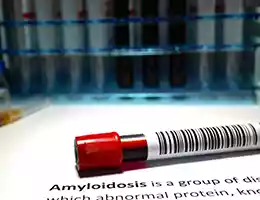Cardiovascular diseases continue to be a leading cause of death and disability worldwide. The good news is that many of these conditions are preventable or manageable if caught early. Early detection in cardiovascular health, with the help of the cardiology office in Las Vegas, refers to identifying risk factors or early signs of heart-related conditions before they escalate into more serious problems. With advances in medical technology, early screening methods have become more accessible and effective, allowing individuals to take control of their health. By being proactive alongside the practices of the cardiology clinic in Las Vegas, you can significantly reduce your risk of heart attacks, strokes, and other serious complications. Early detection is not just about saving lives; it’s about improving quality of life, avoiding costly treatments, and empowering individuals to make informed health decisions.
Recognizing the Early Warning Signs of These Issues
One of the most challenging aspects of this disease is that many of its early symptoms are subtle or even silent. Conditions like high blood pressure, high cholesterol, and the early stages of coronary artery disease often progress without noticeable signs, leaving many people unaware of the danger they face. However, with regular health check-ups and screenings, these risk factors can be detected long before they manifest into more serious problems. Early warning signs may include symptoms like chest discomfort, shortness of breath during physical activity, unusual fatigue, or swelling in the legs. Unfortunately, many people dismiss these symptoms as everyday issues or signs of aging, not realizing they may be early indicators of cardiovascular problems. By recognizing these signs and seeking medical advice from the cardiology clinic in Las Vegas promptly, individuals can prevent the progression of these conditions and take steps to safeguard their heart health.
Preventing the Progression of Disease through Early Intervention
Early detection allows the cardiology office in Las Vegas to intervene before cardiovascular diseases become life-threatening. When risk factors such as high blood pressure, elevated cholesterol, or plaque buildup in the arteries are detected early, doctors can implement preventive strategies to slow or even halt the progression of the disease. Lifestyle modifications, such as adopting a heart-healthy diet, increasing physical activity, managing stress, and quitting smoking, can have a profound impact on heart health. Additionally, early interventions may include medications to control blood pressure, reduce cholesterol levels, or prevent clot formation, all of which lower the risk of heart attacks or strokes. By catching these risk factors early, individuals can avoid the need for more invasive procedures, such as angioplasty or heart surgery, and enjoy a better quality of life. Preventing the progression of cardiovascular disease not only reduces the physical toll on the body but also alleviates the emotional and financial strain often associated with chronic illness.
Reducing the Financial Burden of Treatments
Hospitalizations, surgeries, long-term medications, and rehabilitation costs can place a significant burden on individuals and their families. Early detection and preventive care, however, can drastically reduce these costs. Regular screenings and early intervention strategies, such as lifestyle changes and medications, are far less expensive than emergency treatments like heart surgeries, intensive care stays, or long-term management of chronic conditions. By identifying potential issues early, individuals can manage their cardiovascular health more effectively and prevent costly medical interventions down the road. Moreover, many health insurance plans cover the cost of regular screenings, making it easier and more affordable for people to stay on top of their cardiovascular health. Investing in early detection not only improves long-term health outcomes but also ensures that individuals can avoid the high financial costs associated with advanced heart disease.
Peace of Mind through Proactive Cardiovascular Health Monitoring
One of the most significant advantages of early detection is the peace of mind it offers. Knowing that you are actively monitoring your heart health and taking preventive measures can alleviate anxiety and help you feel more in control of your well-being. Regular check-ups provide valuable insights into your cardiovascular health, allowing your doctor to track changes in blood pressure, cholesterol levels, and other key indicators. This ongoing monitoring enables healthcare providers to detect any negative trends early on and adjust their treatment plan before a serious issue arises. For many individuals, the knowledge that they are doing everything they can to protect their hearts provides a sense of empowerment and confidence. In addition, for those with a family history of heart disease, proactive monitoring can help mitigate inherited risks, offering even greater peace of mind. By staying informed and engaged in your cardiovascular health, you can enjoy a longer, healthier life while reducing the stress and worry that often accompanies health concerns.
Conclusion
Early detection is a powerful tool in the fight against cardiovascular disease. By recognizing warning signs, intervening early, and taking proactive steps to manage risk factors, individuals can significantly reduce their chances of experiencing life-threatening heart conditions. Moreover, early detection not only prevents the physical and emotional toll of cardiovascular disease but also alleviates the financial burden associated with late-stage treatments. By prioritizing regular health screenings and staying vigilant about cardiovascular health, you can ensure a healthier, more fulfilling life, free from the constant worry of heart-related issues. Early detection empowers you to take control of your future and live with confidence, knowing that your heart is in good hands.

